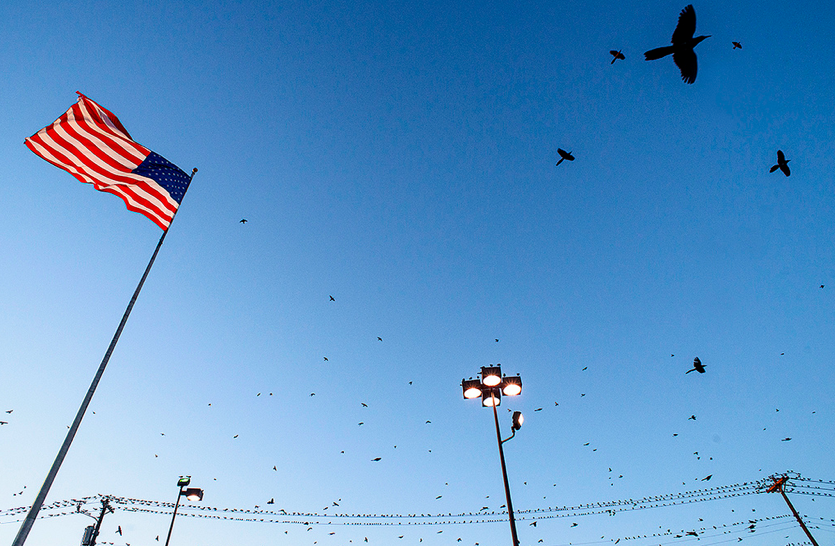With the Fourth of July upon us, let’s ponder patriotism.
I will wave an American flag on Independence Day. Waving the flag is a simple gesture of love for country.
It should be enough to trust that if you fly your flag from your front porch or wave it at a neighborhood parade, you are bound with others as a true American partisan. Nowadays, though, flag-wavers are challenged left and right by the left and the right.
Critics on the left say that flag-waving betrays a spirit of nativism that elevates national pride to a vice. They point to the sins of our nation’s treatment of Native Americans, our history of racism, and our exploitation of other peoples for the sake of our empire as evidence of patriotic excess. Their cosmopolitanism wishes to love every human being with equal love to what we show toward Americans. Borders are unnatural boundaries imposed by powerful politicians and protected by powerful armies. Waving a national flag is therefore inherently inhumane. It asserts a claim of superiority that is blind to moral failings.
The witty British journalist G. K. Chesterton called these cosmopolitans to task in his own day. They love humankind in general, he said, but have a hard time loving any humans in particular. They love the whole world with a cold idealism, but that makes them equally cool toward those closest to them. In contrast, those who love those nearest to them most will have greater sympathy for those farthest from them. A wife believes most in marriage when she loves her husband with whom she lives. If she loves marriage more than her imperfect husband, she undermines the institution of marriage as well as her own.
A patriot loves his country because it is his, but he understands that those who live in other countries feel the same about theirs, and this gains his respect. He understands that he might have to fight and die for his flag against those who do the same under theirs, but because he is self-aware of the perils of war he refuses to turn his enemy into an animal to justify his fight.
Critics from the right too often equate patriotism with nationalism and militarism. If you love your country you must think it exceptional. The term exceptionalism was first used by Alexis de Tocqueville to describe a country built on principles rather than historical circumstance. America is unusual in being built upon ideals like freedom and opportunity for all. America cares less about where you come from and more about what you amount to. When, however, these exceptional qualities provide a mask for imposing our will on others because we are better than others, we undermine the principles we claim to live by.
The same is true for those who equate patriotism with military service or unqualified military support. If you didn’t serve, you will never understand. If you don’t see military action as the solution to every international problem, don’t bother unfurling your flag.
Patriotism is not a competition. Patriots love their country by loving their countrymen; and they love the rest of the world by loving their country first. What makes America exceptional just may be our capacity to see our flag-waving neighbors as fellow patriots, even if they don’t vote the way we do.






